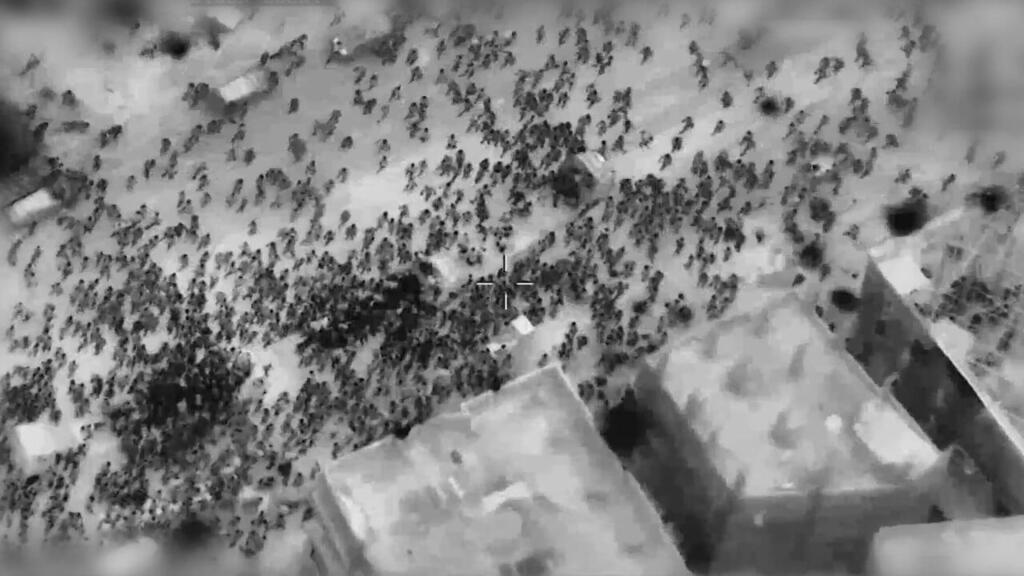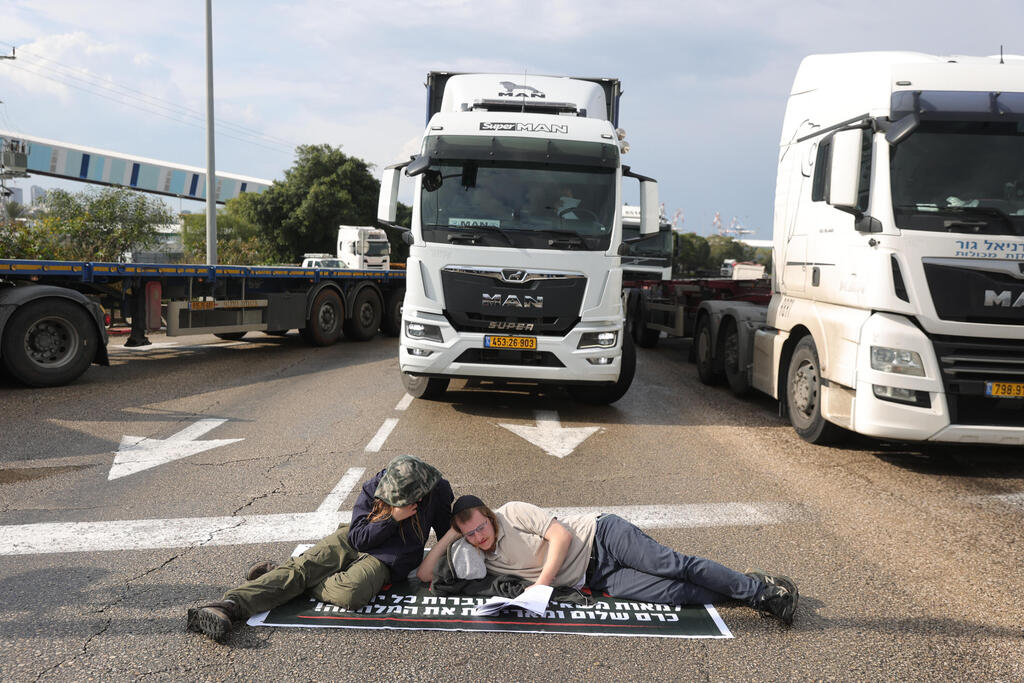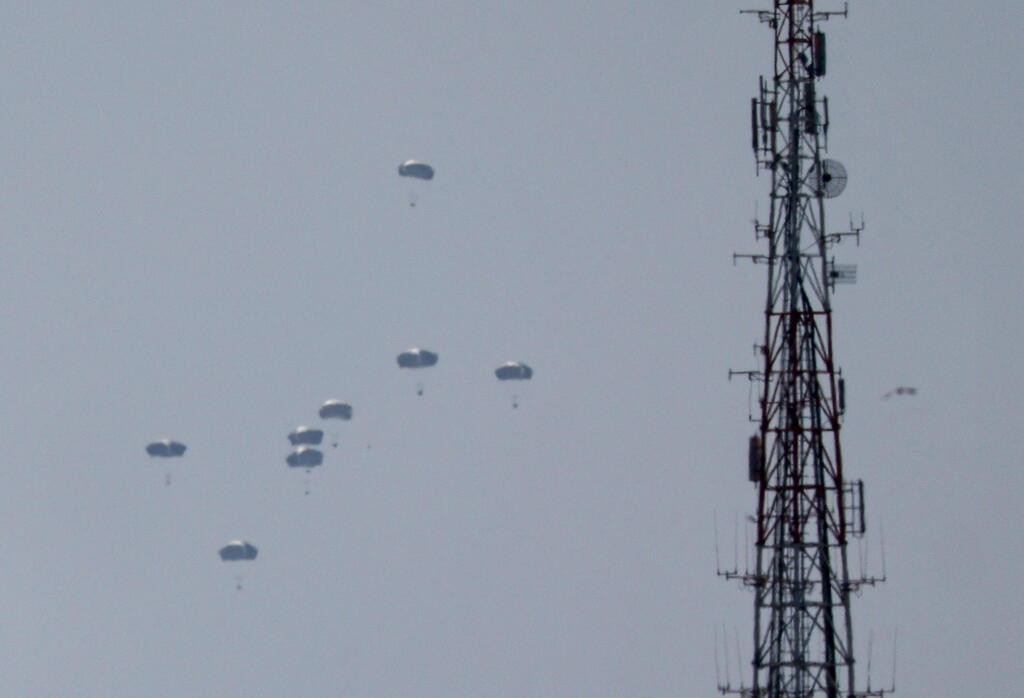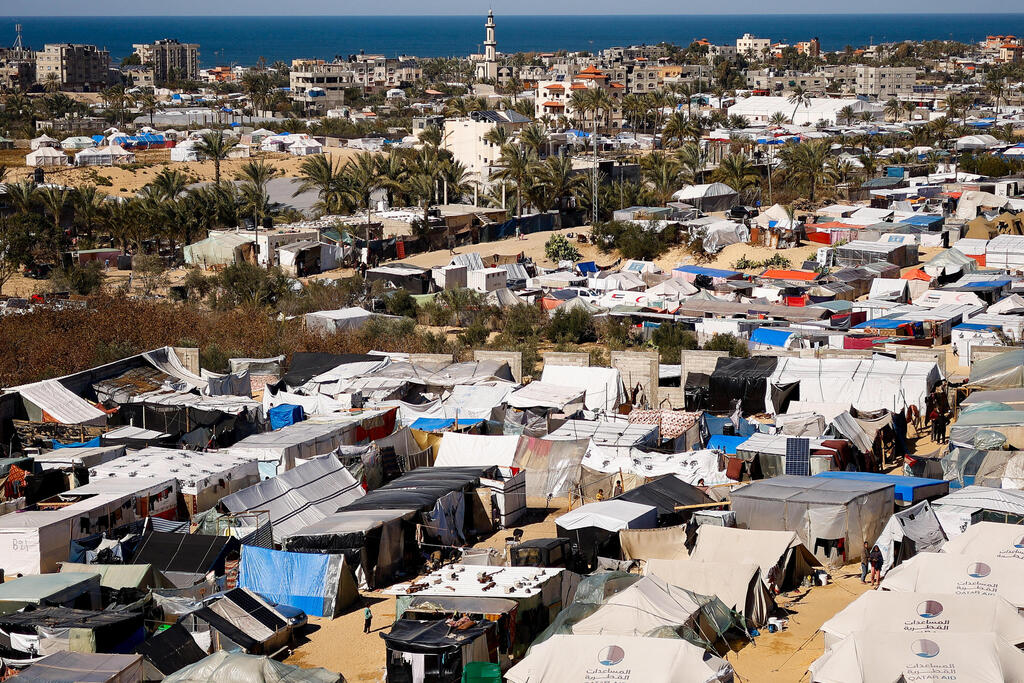“Disinformation is not just misleading,” United Nations Secretary-General António Guterres said just last July, “it is dangerous and potentially deadly.” This type of commitment to the truth, however, is left on the sidelines by Guterres and others when it comes to Israel. In this case, truth becomes secondary to the narrative.
Read more:
On Thursday, an Israeli pilot operation took place in which trucks were let into the Gaza Strip, carrying humanitarian aid to northern Gaza through Israeli territory to reduce dependency on Hamas and UNRWA. What followed was less than a smooth transition: a Palestinian mob stormed the trucks, apparently seriously desperate for aid, which eventually evolved into a deadly stampede where multiple Palestinians were reportedly crushed to death or run over by terrified truck drivers.
Guterres later said he was “shocked” and “appalled at the reported killing and injury of hundreds of people … Life is draining out of Gaza at terrifying speed.” He then reiterated his call for an immediate “humanitarian cease-fire”. Israel’s Defense and Security Forum – Habithonistim covered that incident in our Weekly War Summary.
Headlines around the world jumped to the conclusion that “Israeli soldiers fire[d] on crowds seeking aid”, as one paper pointed out, and that “Israel not only prevents entry of aid into Gaza, but also kills those who try to receive it”.
Egypt issued a strong condemnation, calling the attack “an inhumane Israeli attack on Palestinian civilians waiting for the arrival of humanitarian aid trucks.”
The UN Security Council convened at Algeria’s request, focusing on the Israeli troops who defended themselves. Guterres himself repeatedly accused Israel of causing a “totally unprecedented” number of civilian casualties during the war.
4 View gallery


IDF drone footage of Gazan mob clamoring for aid in deadly crush
(Photo: IDF Spokesperson's Unit)
However, by slandering Israel and pointing its responsibility to the incident, they failed to mention the most obvious detail of the story – Israel facilitated humanitarian aid into Gaza, and risked its soldiers’ lives in order to secure a humanitarian corridor to that end. Instead, the story evolved into depicting IDF soldiers as indifferent to the lives of Palestinians.
Such was the utter disregard for the IDF’s safeguarding of the Salah al-Din humanitarian corridor to allow the smooth movement of the Gazan population southward in October and November 2023.
Incredibly, a surreal scene eluded the eyes of the critics: IDF tanks and troops safeguarded the Palestinian civilians while Hamas did everything it could to prevent the movement, fearing it would compromise its fighting against the IDF. Hamas used roadblocks to stop the movement, and its snipers and operatives even targeted their own population with fire and IEDs. Hamas’ Ministry of Communication accused fleeing Gazans of “colluding with a second Nakba."
Disinformation attempting to sabotage Israel’s war on terrorism is nothing new in this war: the same goes for the claim that 30,000 Palestinians were killed by Israel in Gaza, of which 70% are women and children, widely echoed by the UN, the EU and some media outlets – only that these figures are provided by Hamas’ fictitious “Ministry of Health”.
The claim that Israel killed 500 Palestinians in the Al Ahli Al Arab hospital took minutes to reach front-page news, resulting even in the cancelation of President Biden’s attendance at a summit in Jordan – while in fact, a misfired PIJ rocket landed in a nearby parking lot, injuring several people.
How come Hamas is not only cooking the books, but feeds this information to some prominent world leaders? Whether voluntarily or not, it appears that the UN has caught up with the trend to effectively become a mouthpiece for Hamas’ and Iranian propaganda, for whatever reason one might imagine.
The scale and scope of this phenomenon indicate just how unusual the marginalization of truth and facts has become when it comes to Israel’s fight against terrorism, as opposed to the commitment to truth and tackling disinformation in the case of COVID-19, Russia’s war on Ukraine and elsewhere.
This pattern simply keeps repeating, yet those of us who don’t usually keep track or pay close attention might get lost in the daily spiral of news to be able to detect it. The “100 UN aid workers” killed by Israel were, in fact, Hamas operatives in disguise; many of the claimed “94 journalists” turned out to be known Hamas or PIJ affiliates and operatives, such as Al Jazeera’s Mohamed Washah and the senior PIJ operatives whose salary slips were published by the IDF.
Hamas savvily identifies golden PR opportunities and leverages them, knowing which strings to pluck, and the receiving end of that music happily resonates its tune.
The truck incident is therefore yet another clear attempt by Hamas to deflect attention from the slaughter of 1,200 Israelis on October 7 and turn it around into a Palestinian victimhood story, rather than the most brutal assault in Israel’s history. The issue is not Hamas in this case, but those who repeat its messaging.
Every world leader, journalist and social media user needs to be acutely aware of Hamas’ and Iran’s clever disinformation methods, and take caution. The easy choice is to ride on the already-provided track. The less-than-obvious choice, however, happens to be the right one: the choice to seriously question information coming out of Gaza, and recognize the real danger to the safety and security of the democratic world – terrorism and the Russia-China-Iran axis. Extra fact-checking and caution against disinformation are of the essence in this war – even when it comes to Israel.
- Or Yissachar is VP of Content and Research at IDSF-Habithonistim – Israel’s Defense and Security Forum





